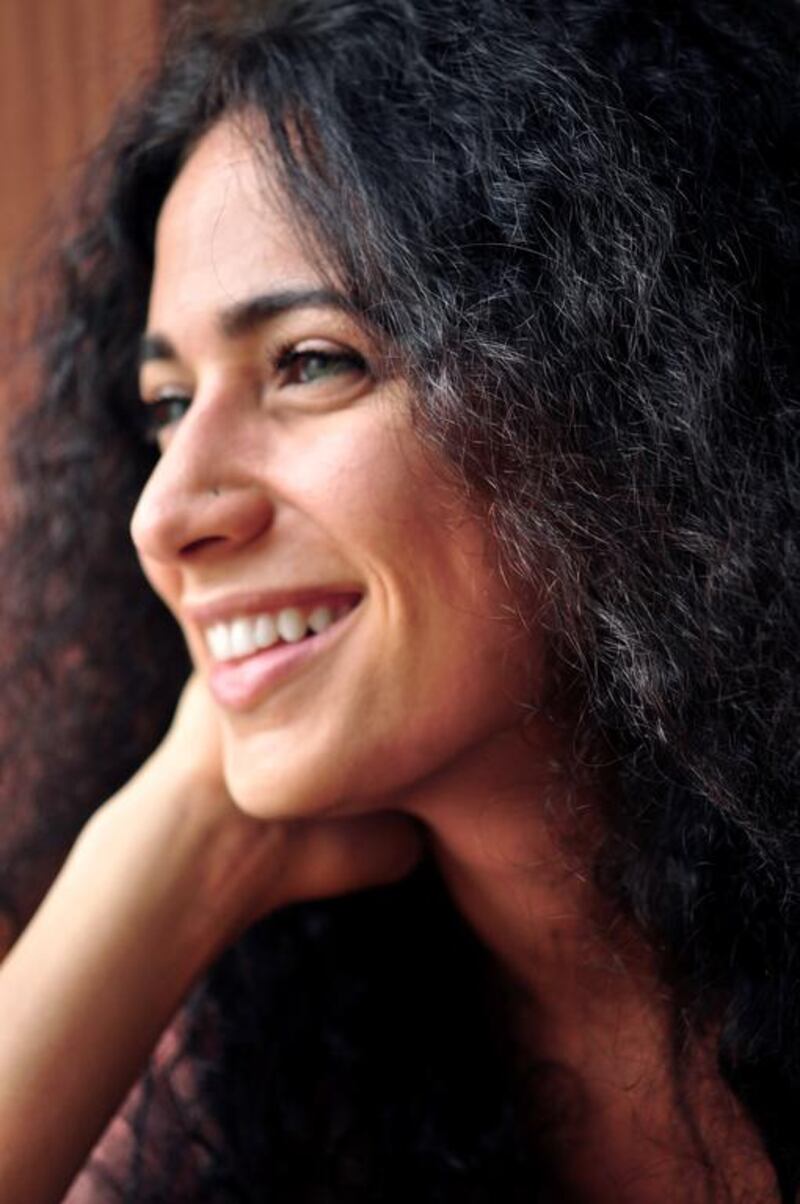Hala Alyan, 27, is a doctoral candidate in psychology who grew up in more than a dozen cities around the US and Middle East, including Al Ain, and who currently lives in Brooklyn. Her poetry can be startlingly personal and often deals with her feelings about places: from Gaza, where her father is from, to towns in the American Midwest.
Have you always written poetry?
Absolutely, it is a very essential part of me and it has been since I was a child. It’s an outlet, and something to turn to [in order] to cope with various things that I’ve gone through. I can’t imagine ever not writing.
Is it hard to make your more intimate work public?
For a really long time I never showed anyone anything that I wrote, ever. And then in 2011, I went to my first open mic – I was daring myself to just try it – and I fell in love not just with the performance element but also with the community that goes along with it. There was a part of me that was very terrified about putting all of these private things out in the world, but I’m glad that I did it.
Poetry seems more central to the culture in Arabic-speaking countries than in the anglophone world.
Yes. My grandfather is a writer as well and I’ve always been such a big fan of Mahmoud Darwish and contemporary poets such as Naomi Shihab Nye. There has been something very inspiring in knowing that [my poetry] is in keeping with that tradition. It’s what emboldened me to want it to be out there.
Do you have rituals for writing?
I’ve been writing poetry my entire life and there’s instant gratification: you work on a poem and then you have a poem to show for it. I’ll think of something on the subway and I’ll write it on my phone. But with fiction I write every day for half an hour. I have to discipline myself because I find that kind of writing a lot more difficult.
Do people expect your work to engage with your Palestinian roots?
For me it was difficult for a really long time because I had such intense emotions on the subject and it was very hard for me to form and filter my thoughts. I’ve only really been writing about Palestine more avidly in the last year and a half.
You once wrote: “sometimes / it is better […] to say, simply, the sky is beautiful today […] instead of reaching always for the poetry.”
I remember being worried that a poem I was writing about a particular experience would be read by someone who was involved. I was trying to be really cryptic and not really referencing anything and it struck me that you can hide behind words and there are times when it’s more cathartic to just say what it is you’re trying to say.
BOX OUT
History of the Arab American Book Awards
Arab-American writers got their own set of literary prizes in 2007, when the Arab American National Museum in Dearborn, Michigan (a city in which more than 40 per cent of the population identifies as Arab), along with the nearby University of Toledo, launched prizes in fiction, non-fiction, and writing for children. According to the event’s organiser Matthew Stiffler, the aims of the event are two-fold: to celebrate the writers themselves, and to increase interest in their work.
In 2009, a poetry prize was added, and in 2011 a “lifetime achievement award” was also introduced, awarded posthumously in the inaugural year to Ameen Rihani, who wrote a novel a hundred years earlier about two Lebanese immigrants to “Little Syria” in lower Manhattan.
BOX OUT
Sidebar:
In 2011, a year before he was shot and killed in Syria, the New York Times reporter returned to his great-grandfather’s home in southern Lebanon to rebuild it by hand. He had just been captured and beaten on assignment in Libya, and needed time to piece his identity back together. The memoir he wrote about that experience is both moving and cerebral.
Fiction: Lebanese Blonde by Joseph Geha
Like his previous collection of short stories, Geha’s novel is informed by his experiences growing up in an Arab community in Toledo, following a group of émigrés in the mid-Seventies as they pursue a shady moneymaking scheme.
Children/ Young Adult: Hands Around the Library by Susan L. Roth and Karen Leggett Abouraya
Set in Cairo in the early days of the revolution, this beautifully illustrated book tells the story of demonstrators forming a human chain to protect the great Library of Alexandria.
Lifetime Achievement: Dr Alixa Naff
The late Syrian-American academic, who wrote an influential book on Arab immigrants to America in 1985, died this summer at the age of 93. Her research materials can be seen in the Smithsonian and the National Museum of American history.
for details
[ artslife@thenational.ae ]





